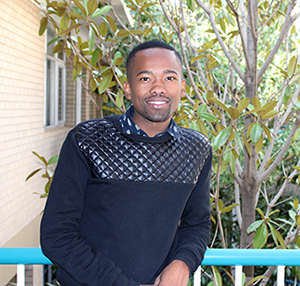Latest News Archive
Please select Category, Year, and then Month to display items
12 October 2020
|
Story Arina Engelbrecht
|
Photo Supplied
 Arina Engelbrecht from Organisational Development and Employee Well-being believes physical activity has a number of benefits for one’s health, including stress relief.
Arina Engelbrecht from Organisational Development and Employee Well-being believes physical activity has a number of benefits for one’s health, including stress relief.
Being physically active plays a big role in preventing the development of mental-health problems and in improving the quality of life of people experiencing mental-health problems.
Treatment for depression
Physical activity can be an alternative treatment for depression. It can be used as a stand-alone treatment or in combination with medication and/or psychological therapy. It promotes all kinds of changes in the brain, including neural growth, reduced inflammation, and new activity patterns are formed that promote feelings of calm and well-being. It releases endorphins – powerful chemicals in the brain that energise your spirit and make you feel good.
Physical activity can be very effective in relieving stress. Research in adults has found that physically active individuals tend to have lower stress levels compared to individuals who are less active. It also leads to improved sleep. When a person sleeps better and feels more rested, overall quality of life improves. They cope better with daily life stressors.
Reduce Alzheimer's risk
Regular physical activity can reduce your risk of developing Alzheimer's disease by up to 50%. It can also slow down further deterioration in those who have already started to develop cognitive problems. It stimulates the brain’s ability to maintain old connections as well as to make new ones.
A study asked people to rate their mood immediately after periods of physical activity (e.g. going for a walk/run, cycling, doing housework) and periods of inactivity (e.g. reading a book or watching television). Researchers found that participants felt more content, more awake, and calmer after being physically active compared to after periods of inactivity.
In conclusion, people who are physically active feel a sense of well-being, feel more energetic throughout the day, sleep better at night, have sharper memories, and feel more relaxed and positive about themselves and their lives.
“Being physically active not only changes your body, it changes your mind,
attitude, and your mood.” – Arina Engelbrecht
Stained glass artist’s hard work recognised
2016-07-13

Bongani Njalo, project co-ordinator for the
Program for Innovation in Artform Development,
was recognised as one of the 200 Young
South Africans by the Mail & Guardian category
for the year 2016.
Photo: Siobhan Canavan
“I’ve used each highlight of my career as a benchmark for greater accomplishments.”
These are the words of Bongani Njalo, who was selected as one of the Mail & Guardian 200 Young South Africans together with Adv Loyiso Makapela, Junior Lecturer at the University of the Free State (UFS) Law Faculty. Njalo was recognised in the Arts and Culture category for his outstanding contribution to the art scene.
Getting to know the artist
The fine art graduate has worked on different art projects in several cities, and is currently the project co-ordinator for the Program for Innovation in Artform Development (PIAD). PIAD is a programme developed by the UFS and the Vrystaat Arts Festival, which focuses on how technology, interdisciplinary and experimental arts can connect with and impact on communities.
Aspiring artist on the move
Soon, this young artist will be on the move again, as he has been accepted into the Internal Leadership Program in Visual Arts Management at Deusto Business School, taking place in Bilbao in Spain in November and in New York next March.
When asked about the nomination, Njalo simply said: “To be honest with you, I don’t feel any differently whatsoever. I now feel I have more work I’d like to do.”
A man of many talents
Not only was Njalo an intern at the Mandela Bay Development Agency where he compiled the book entitled Art & Artists of the Eastern Cape, but he also curated the Eastern Cape Artists Exhibition at the Grahamstown National Arts Festival in 2011.
In 2012, Njalo was invited to curate a group exhibition, Beehive, for the Cape Town International Month of Photography Festival, and in 2014 he won the David Koloane Mentorship Award.